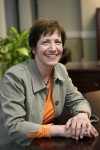Faculty
 Julie Booth
Julie Booth
Telephone: (215) 204-6223
julie.booth@temple.edu
Julie L. Booth, Ph.D. is an Associate Professor of Educational Psychology and Applied Developmental Science at Temple University. She received her Ph.D. in Psychology in 2005 from Carnegie Mellon University and trained as a post-doctoral fellow at the NSF-funded Pittsburgh Science of Learning Center, where she conducted research on students’ learning in real-world classrooms. Dr. Booth’s research interests lie in the development of mathematical cognition; how students come to develop conceptual understanding and procedural skills in mathematics. Her research also examines individual differences in factors that influence this learning, and in developing interventions to improve student learning in math. Dr. Booth has been PI and Co-PI on five federally funded projects, including the National Center for Cognition and Mathematics Instruction led by WestEd and the AlgebraByExample project in collaboration with the Strategic Education Research Partnership.
 Jason Chein
Jason Chein
Telephone: (215) 204-7314
jchein@temple.edu
Jason Chein, Ph.D. is an Associate Professor in the Department of Psychology (Brain, Behavior, & Cognition) at Temple University. Broadly, research in Dr. Chein’s laboratory employs a cognitive neuroscientific approach to evaluate alternative theoretical claims surrounding the basic mechanisms of cognition, the relationship among these mechanisms, and the contribution each makes to high-level cognitive function. Dr. Chein has extensive training in the use of functional magnetic resonance imaging (fMRI) and employs this technique in combination with traditional behavioral measures to pursue his research goals. His primary research focus is on the psychological and neurobiological underpinnings of working memory (immediate memory, short-term memory, controlled attention), and its role in cognitive control, learning, and decision making. Dr. Chein obtained his undergraduate degrees in Psychology and Computer Science from Temple University in 1997, and rejoined the Temple community as a member of the faculty in January of 2006. During the interim, he earned his M.S. and Ph.D. in cognitive psychology with a specialization in cognitive neuroscience from the University of Pittsburgh and then completed a post-doctoral fellowship at Princeton University.
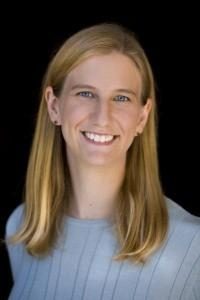 Alexandra Davatzes
Alexandra Davatzes
Telephone: (215) 204-3907
alix@temple.edu
Alix Davatzes is an Associate Professor in the Department of Earth and Environmental Science at Temple University. Her research interests include planetary geology, sedimentology, early Earth processes and geoscience education. Her current research focuses on studies of Precambrian meteor impacts and the implications for early Earth. She is the PI of an NSF CAREER grant to research these impact deposits in Western Australia and South Africa. She is Co-PI on an NSF GP-IMPACT grant to promote career pathways for urban geoscientists. She also collaborates with cognitive scientists on understanding spatial reasoning in the geosciences as part of the NSF Science of Learning Center.
 Elizabeth Gunderson
Elizabeth Gunderson
Telephone: (215) 204-1258
liz.gunderson@temple.edu
Elizabeth Gunderson is an Assistant Professor in the Department of Psychology at Temple University. Dr. Gunderson’s research focuses on the cognitive and socio-emotional factors that affect young children’s academic achievement, especially in the domain of mathematics. She is currently investigating how verbal interactions facilitate preschoolers’ development of number concepts; how visuo-spatial skills relate to children’s early number knowledge; how teacher’s and children’s anxieties influence students’ math performance; and how children’s beliefs about the malleability of math and reading ability affect their achievement motivation.
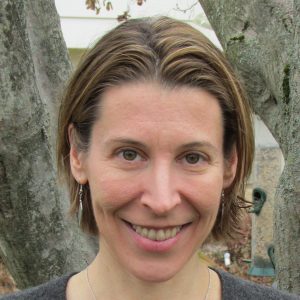 Annemarie Hindman
Annemarie Hindman
Telephone: (215) 204-5589
annemarie.hindman@temple.edu
Annemarie Hindman is Associate Professor of Educational Psychology and Early Childhood Education at Temple University. She also coordinates the Educational Psychology program. She studies how young children build foundational skills, including language, literacy, and social competence, throughout the first years of life and the transition to formal schooling. Much of her work focuses on communities in poverty, including participants in Head Start programs. Her work is characterized by three strands: professional development interventions, classroom-aligned family interventions, and secondary data analysis. Dr. Hindman earned a bachelor’s degree in history from Yale University, as well as a master’s degree in developmental psychology and a Ph.D. in education and psychology from the University of Michigan.
Kathryn Hirsh-Pasek
Telephone: (267) 468-8610
khirshpa@temple.edu
Kathryn Hirsh-Pasek is the Stanley and Debra Lefkowitz Distinguished Faculty Fellow in the Department of Psychology at Temple University. Her research in the areas of early language development, literacy and infant cognition has been funded by the National Science Foundation and the National Institutes of Health and Human Development and the Department of Education (IES). Kathy is deeply invested in bridging the gap between research and practice. To that end, she was a researcher on the NICHD Study of Early Child Care and Youth Development and co-developed the language and literacy preschool curricula for the State of California. Kathy received her bachelor’s degree from the University of Pittsburgh and her Ph.D. at University of Pennsylvania.
 Doug Lombardi
Doug Lombardi
Telephone: (215) 204-6132
doug.lombardi@temple.edu
Doug Lombardi is an Assistant Professor of Science Education in the College of Education at Temple University. His areas of interest include cognitive judgments and reasoning, conceptual change, epistemic cognition, and climate change education. He is the PI of an NSF-funded project examining students’ scientific thinking when confronted with controversial and/or complex Earth and space science topics. Dr. Lombardi earned a bachelor’s degree in mechanical engineering from the University of Colorado, a masters degree in environmental engineering as well as a masters in education from the University of Tennessee, and a Ph.D. in educational psychology from the University of Nevada.
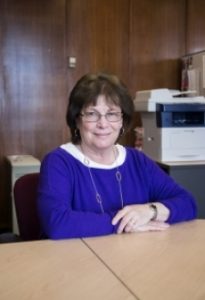 Nadine Martin
Nadine Martin
Telephone: (215) 204-1870
nmartin@temple.edu
Nadine Martin, Ph.D., is a Professor in the Department of Communication Sciences and Disorders at Temple University. Her research focuses on the relationship between word processing and short-term memory and the implications for rehabilitation of word retrieval disorders. Within these domains, she conducts both theoretical and treatment-oriented investigations. A primary theoretical interest concerns the architecture of lexical retrieval processes and their relation to verbal STM processes.
Nora S. Newcombe
318 Weiss Hall
Telephone: (215) 204-6944
newcombe@temple.edu
Nora S. Newcombe, Ph.D, is a Professor of Psychology at Temple University. Her research centers on cognition, development, spatial thinking, memory, and STEM education. Honors include the William James Fellow Award from APS and the George Miller Award and the G. Stanley Hall Awards from APA, the Award for Distinguished Service to Psychological Science, also from APA, and the Women in Cognitive Science Mentor Award. She is a fellow of four divisions of the American Psychological Association (General, Experimental, Developmental, and Psychology of Women), of the American Psychological Society, of the Cognitive Science Society, and of the American Association for the Advancement of Science, and has been a Visiting Professor at the University of Pennsylvania, Princeton, and the Wissenschaftskolleg in Berlin.
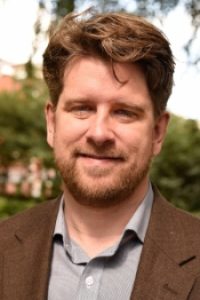 Jamie Reilly
Jamie Reilly
Telephone: (215) 204-3995
reillyj@temple.edu
Jamie Reilly is an Associate Professor and Interim Chair of the Department of Communication Sciences and Disorders at Temple University. During a period of supreme darkness, he was previously an Assistant Professor at the University of Florida. Jamie’s undergraduate training was in Linguistics and Russian at Tulane University. After a stint teaching English in South Korea, Jamie returned to graduate school and completed a clinical Master’s degree in Speech-Language Pathology. He then became interested in memory and cognition and subsequently completed a PhD in Cognitive Psychology (Temple) followed by a postdoctoral fellowship in Cognitive Neuroscience (UPenn). Dr. Reilly is the director of the Memory, Cognition, & Concepts Laboratory. The lab’s research is funded by grants from the National Institute on Deafness and Other Communicative Disorders. Jamie’s research interests involve semantic memory and lexical representation. He investigates these phenomena using a combination of techniques, including functional MRI, eyetracking, neurostimulation, and behavioral paradigms.
 Thomas F. Shipley
Thomas F. Shipley
325 Weiss Hall
Telephone: (215) 204-7890
tshipley@temple.edu
Thomas F. Shipley’s research focuses on spatial cognition and learning. He applies formal methods from previous research to understand the perceptual and cognitive processes subserving navigation and visualization. His recent work aims to support undergraduate geology education with a longer term goal of understanding the cognitive processes that are critical for spatial reasoning and thus support STEM education in general for both K-12 and undergraduate students.
IES Postdoctoral Training Fellows
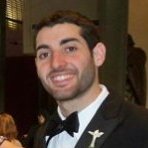 Andres Bustamante
Andres Bustamante
650 Ritter Annex
Telephone: (215) 204-2283
andres.bustamante@temple.edu
Andres is a Postdoctoral Research Fellow at Temple University under the Institute of Education Sciences “Network for Integrating Cognitive and Educational Sciences (NICE) Postdoctoral Research Training Grant Program.” He has a dual appointment in the Department of Psychology and the College of Education under the mentorship of Dr. Annemarie Hindman and Dr. Kathryn Hirsh-Pasek. The overarching goal of Dr. Bustamante’s research is to utilize principles of child development to generate innovative early childhood interventions that promote adaptive domain-general learning skills among children from low-income families. More specifically, Dr. Bustamante aims to measure, intervene upon, and provide professional development around mastery motivation, approaches to learning, and executive functioning in the Head Start and Early Head Start settings. This line of research capitalizes on the powerful impact of early intervention and cultivates domain-general learning skills that can set children on a trajectory of school and life success. Dr. Bustamante earned a bachelor’s degree in developmental psychology from Emmanuel College, as well as a master’s degree and Ph.D. in developmental psychology from the University of Miami.
Brianna McMillan
333 Weiss Hall
Telephone: (267) 468-8610
brianna.mcmillan@temple.edu
Brianna is a Postdoctoral Fellow at Temple University under the Institute of Education Sciences “Network for Integrating Cognitive and Educational Sciences (NICE) Postdoctoral Research Training Grant Program”, working with Kathy Hirsh-Pasek and Annemarie Hindman. She received her Ph.D. in cognitive psychology from the University of Wisconsin-Madison. Dr. McMillan’s research explores how children’s environments affect their ability to learn language. In her postdoctoral work, she is expanding her research focus beyond environments that might hinder language development, into environments that can facilitate language development and more general cognitive development.
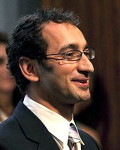 Kreshnik Begolli
Kreshnik Begolli
644 Ritter Annex
Telephone: (310) 266-3266
kreshnik.begolli@temple.edu
Kreshnik Begolli received his PhD in Education from the University of California, Irvine in 2014. Motivated to understand how humans learn and impart knowledge and the desire to advance science and education, Kreshnik’s research arena alternates between the laboratory and the classroom. By blurring the line between the two, Kreshnik’s research draws primarily from cognitive research in analogical reasoning. As an IES postdoctoral fellow at Temple he hopes to reveal the links between analogy making, math cognition, and spatial thinking – in hopes to discover effective instructional strategies leading to conceptual, generalizable knowledge in mathematics.
Nicole Hallinen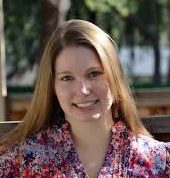
322A Weiss Hall
Telephone: (215) 204-4028
tug55856@temple.edu
Nicole is a postdoctoral fellow at Temple University under the Institute of Education Sciences “Network for Integrating Cognitive and Educational Sciences (NICE) Postdoctoral Research Training Grant Program”, working with Nora Newcombe and Julie Booth. She received her PhD from Stanford’s Developmental and Psychological Sciences program, with a focus in Learning Sciences and Technology Design. Nicole studies human induction – the process by which people invent a solution from a series of instances. She is particularly interested in how people discover mathematical solutions, such as equations and formulas, and in how to help encourage induction. Her research investigates two main questions: How does task orientation affect learning? What must be present in the materials provided?

